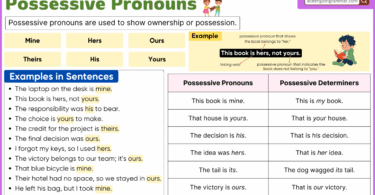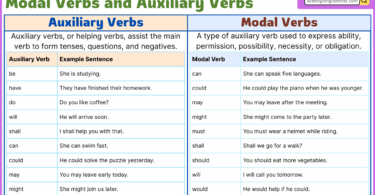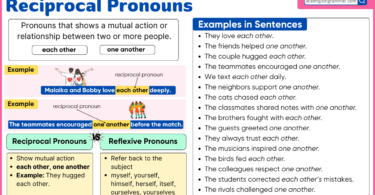In English, phrases and clauses are fundamental building blocks that we use to create sentences. They might seem similar, but they serve very different purposes in our writing and speech. To understand the difference between them, let’s dive into each one with examples and explanations to make the concepts clear.
Table of Contents
What is a Phrase?
A phrase is a group of words that does not have both a subject and a verb. Phrases work together to add detail, but they cannot form a complete sentence on their own. Think of them as parts of a sentence that give more information but need to be connected to a main idea.
Example:
- The big brown dog.
In this example, we know the subject is a dog, and we have some details about the dog (big and brown), but there’s no action being described here. We don’t know what the dog is doing, so this phrase doesn’t form a complete thought.
Types of Phrases:
- Noun Phrase – A group of words based around a noun.
- The tall tree in the garden. This phrase describes a specific tree but doesn’t tell us what is happening.
- Verb Phrase – A group of words based around a verb.
- Has been working hard. Here, we see a verb phrase, but it doesn’t tell us who has been working hard. We still need a subject to make it complete.
- Prepositional Phrase – Begins with a preposition and gives more information.
- In the park. This phrase tells us where something is happening, but we don’t know what is happening or who is involved.
Let’s combine these phrases into a full sentence:
- The tall tree in the garden has been growing for years.
Now, this sentence makes sense because we’ve added a subject (the tall tree) and an action (has been growing), making it a complete thought.
What is a Clause?
A clause is different from a phrase because it does contain both a subject and a verb. Clauses can stand alone as sentences or be part of a longer sentence. There are two main types: independent and dependent clauses.
Example of an Independent Clause:
- She went to the store.
In this clause, we have a subject (she) and a verb (went), which form a complete idea. This is called an independent clause because it doesn’t need anything else to make sense—it can stand alone as a sentence.
Example of a Dependent Clause:
- After she went to the store.
Here, we still have a subject (she) and a verb (went), but this clause doesn’t express a complete idea. The word “after” makes the clause incomplete. We want to know what happened after she went to the store. This is a dependent clause because it depends on the rest of the sentence to make sense.
To complete the thought, we could say:
- After she went to the store, she bought some fruit.
Now, the dependent clause has a full sentence to connect to, making the meaning clear.
Phrases vs. Clauses: The Key Differences
Let’s compare phrases and clauses so you can see the distinction clearly:
- Complete Thought:
- A phrase does not express a complete thought. It’s just a part of the sentence that adds more information.
Example: In the morning. - A clause, on the other hand, can sometimes express a full idea on its own (if it’s an independent clause).
Example: The sun rises.
- A phrase does not express a complete thought. It’s just a part of the sentence that adds more information.
- Subject and Verb:
- A phrase lacks both a subject and a verb.
Example: With great enthusiasm (we don’t know who or what is being enthusiastic). - A clause always has both a subject and a verb.
Example: He sings (we know who and what is happening).
- A phrase lacks both a subject and a verb.
- Independence:
- A phrase is always dependent on the rest of the sentence. It cannot stand alone.
Example: Under the bed. - A clause can be independent (a full sentence) or dependent (needing another part to make sense).
Example: When the cat hides under the bed (dependent clause) vs. The cat hides under the bed (independent clause).
- A phrase is always dependent on the rest of the sentence. It cannot stand alone.
Examples in Action
Let’s look at how phrases and clauses work within sentences.
- Phrases:
- In the garden, the flowers bloomed.
“In the garden” is a prepositional phrase. It adds detail about where the flowers bloomed, but it can’t stand alone as a sentence. We need the independent clause “the flowers bloomed” to complete the thought.
- In the garden, the flowers bloomed.
- Clauses:
- Although it was late, she stayed awake.
“Although it was late” is a dependent clause. It has a subject (it) and a verb (was), but we need the second clause, “she stayed awake,” to finish the sentence and give it full meaning.
- Although it was late, she stayed awake.
Why Understanding Phrases and Clauses Matters
Mastering the difference between phrases and clauses helps you build stronger, clearer sentences. When you know how to combine them effectively, your writing becomes more descriptive and precise. For example, you can add rich details with phrases and create complex, nuanced sentences by using both dependent and independent clauses.
Test Yourself
Let’s test your understanding with a quick exercise:
Identify whether each of the following is a phrase or a clause:
- Because it was raining.
- Under the table.
- The dog barked loudly.
- With great enthusiasm.
Answers:
- Clause (It has a subject and verb, but it’s a dependent clause).
- Phrase (It’s a prepositional phrase with no subject or verb).
- Clause (It’s an independent clause with a subject and verb).
- Phrase (It adds detail but doesn’t have a subject or verb).
You May Also Like:




Leave a Comment